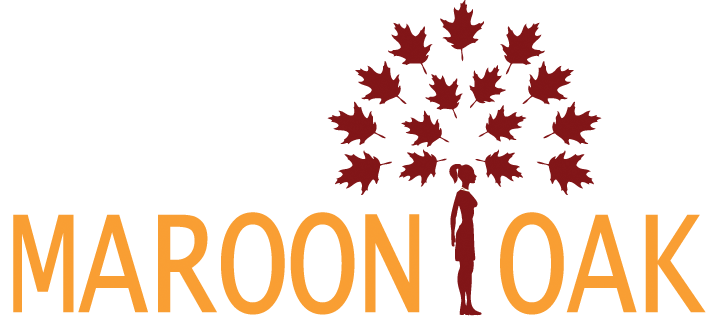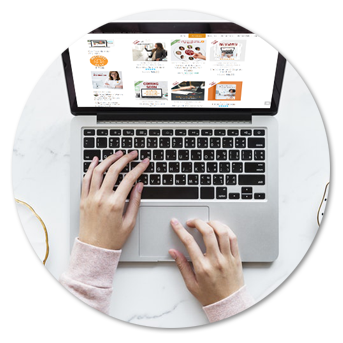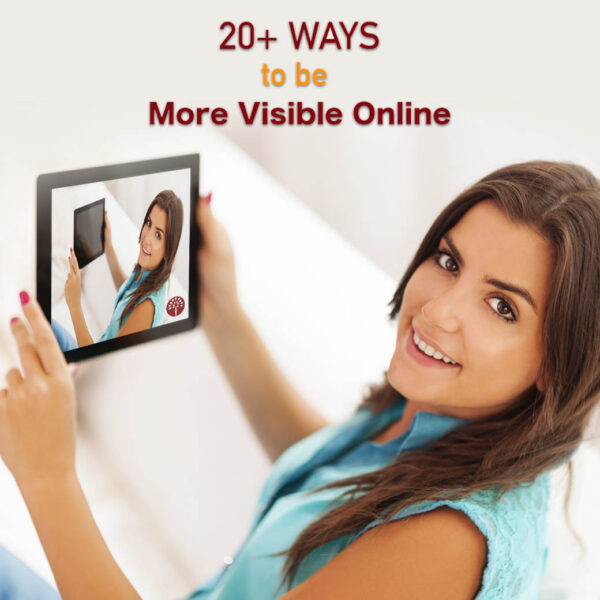Being aware of our own biases is vital to both our personal and professional self. Take a moment to join us on this self-discovery to discover and manage personal triggers.
This year’s International Women’s Day theme implores organizations and individuals to work together to #breakthebias around stereotypes, discrimination, inclusivity, and more. As the day approaches, it’s hard to ignore the onslaught of content around this topic. In my case, fortunately, it has led to some introspection- food for thought to contemplate on my own biases.
What is a personal bias?
A personal bias is a discomfort, prejudice, or unconscious thought against someone or something, entrenched in the recesses of our own mind, and not easily accessed.
No one is immune. Most of us well-intentioned folks carry biases- our environment, upbringing, and even the content we consume, contribute to, and solidify this deep state within our minds. Another way to understand it in a personal context is asking oneself- when am I closed-minded, or prone to judge?
We may have all faced bias, but each one of us is guilty of perpetuating it too, sometimes even to our own selves. While this may not cover the gamut, what I share below is a step in my personal journey for understanding, acknowledging, and reducing my preconceived opinions, in attempts to #BreakMyBias
I’m learning to look beyond first impressions
A few years ago, at a gathering of middle school parents’ intent on countering the administration on sports reforms, a mom of 5 volunteered to be the leader. Watching her take center stage in her sweatpants, and with disheveled hair, I empathized with her lack of time for herself. A mother myself, I could totally visualize her whirl-wind schedule, and mommy brain with 5 kids to manage. I was honestly not sure if she could lead this initiative, let alone make it to all the meetings.
As she progressed in our conversations, her clarity of thought, logical reasoning, and propensity for action made her stand out. What also followed was the fact that she was leading a billion-dollar portfolio at an investment bank. She also shared the ecosystem of support that she had built around her – family, friends, and caregivers she relied on.
Over the course of the next 45 minutes, my view of her morphed from sympathy to deep admiration. This also made me realize that we need to evaluate people on the soft-skills and passion that they bring to the table, irrespective of past history, or a working/ non-working status.
The first impression bias is real, and so are its long-term consequences. One is a halo-effect, when a positive first impression about one trait, such as beauty, leads people to infer the existence of other traits, such as intelligence (or lack thereof, in its absence). The other is confirmation bias when people seek out information that confirms their pre-existing beliefs (and disregard information that conflicts). Can you imagine the implications this has around work, relationships, ideas, business, and more?
Recently a candidate we interviewed and decided not to proceed with reached out and requested a second chance. She admitted that it had been a rough day, and this had been her first interview in a decade. Her initiative and persistence were reason enough for setting up a second round.
To think of it, this has been my personal experience too. When I was interviewing for a design opportunity years ago, I was actually asked by the interviewer to take a deep breath and start all over again. He felt that I was too nervous to be authentic. It worked and I got in, and have always been grateful for that second chance.
That’s why I now encourage myself to form a first impression at the end of interactions (or even later if that’s possible). Though I’m a stickler for being prepared, presentable, and showing up on time, it’s hard to know a person’s backstory, or their chaotic moment right before an interaction.
Delaying the first impressions provides objectivity in our feedback and decisions. I hope you try it too.
I’m embracing that self-promotion is for me
I am still wary about calling attention to my work. Am I unduly modest?
Actually, it is a self-assessment bias stemming from a societal norm around modesty that is expected from a woman. It is born out of the belief that tooting my own horn, blaring my trumpet, showing off the sparkly crown is a no-no for a woman.
And I’m NOT THE ONLY ONE.
Social norms prescribe higher overall intrinsic costs on women when they engage in self-promotion. Women, regrettably then, are more prone to not acknowledging, or sharing their achievements. A study by the National Bureau of Economic Research (NBER) found that the gender gap in self-promotion proves persistent and arises as early as the sixth grade.
Gender norms, social -conditioning, and gender-specific backlash are the most common culprits. Interestingly, one MSU Study on Bragging Rights found that this gap does not extend when women are asked to evaluate, promote or celebrate someone else’s work.
In a professional context especially, visibility is the most important factor in women’s advancement in leadership, career-satisfaction as well as attracting the right mentors and sponsors. Yet, most of us quietly toil away in silence hoping for our successes to make the noise.
So how did I get better at this?
One way that I adopted this personally is making the time to document accomplishments big and small, as a regular habit. Highlighting accomplishments makes for a more confident you and ensures that nothing falls through the cracks. Also, as a team, we make room for conversations with friends and peers, where we welcome, and encourage self-promotion. And as a network, we work together and give a shout-out where it’s due, oftentimes the only spark a peer needs to elaborate on their achievements.
#IamRemarkable is another fabulous initiative by Google, empowering women and other underrepresented groups to be vocal about their achievements in the workplace and beyond.
I can admit that I should not do it all
Most caregiving duties stereotypically fall on women. We are expected to do-it-all and when we don’t, we find ourselves being judged and worse- judging others or ourselves.
I am part of that tribe that likes to be acknowledged as a super-woman with a strong handle on her 24×7 schedule. I can do it all, and, at the same time – work, family, schedules, cook, clean, exercise, organize, party, volunteer.
And, I’m not alone. I’m surrounded by super-achievers of this sort. It’s like being on a hamster wheel with my counterparts and none of us have objectivity as we are all equally intent on keeping pace. It’s the result of a combination of being raised in a patriarchal society and believing that not being perfect and in control is a failing (even though we know that perfectionism is a myth). Plus, being ambitious and unavailable, especially as a mom, is still frowned upon.
Fortunately, I have met some awesome women – unafraid to contradict society’s work-family narrative.
Some study full time, or travel extensively for work, while raising kids. Others who hire help for household jobs, even though it means that most of what they earn (or even not) goes towards that. I also meet people who look beyond messy homes or unorganized cabinets and are able to see your potential & contributions where they truly lie. Women who refuse to cook, whether they work or are at home full-time. Women who are changing gender role expectations and using their voice and choice to live their lives despite criticism and judgment.
Are they doing right by their families? Who am I to judge when I have my own hands full!
In addition to what we face in our community, women caregivers also face stereotypes of being unreliable, uncommitted, and under-performing at work. It is up to us to questions employers and legislatures to do away with workplace discrimination, and systemic bias that penalize working moms for their life choices. Creating awareness, job flexibility, asking for more paid parental leave are some of the ways to begin.
I have learned that I need to prioritize what’s important and be more accommodating of others who choose to do that. I need to say no to things that don’t add to my growth or peace of mind and only create more stress. I am working to be better at establishing physical, professional, and emotional boundaries- being able to acknowledge my limitations and my capacity or lack thereof to take on the ‘extra’.
It’s a journey, but now I am learning to see beyond the social expectations from women and do things my way. If you identify with this, would love for you to join me on this exploration.
Conclusion
As I round out my thoughts, I will not discount the fact that all this becomes so much easier when you have a supportive spouse, and parents who gave you the best opportunities and the wings to reach for them. I also understand that voice and choice is a privilege that many may not be fortunate to have. Asking myself the hard questions and taking action to change the narrative is imperative for the sake of the next generation (and my daughters). My endeavor is to be a mentor and supporter and build an environment where women allow themselves to be challenged and are not afraid to speak their minds. This is just a start.
What are some of the biases that you can identify within yourself? This International Women’s Day, how can you begin to break them and keep this conversation alive?
About The Author
An award-winning Designer and Entrepreneur, Aditi is the co-founder at Maroon Oak– a skills-based Opportunities and Networking platform for Women that also works with leading brands and startups globally, to match them with high-caliber professionals.
She is also the co-founder at Talent Avengers, a film marketing and production company. Two Dotts, is her design consulting company, and she sells gifts, patented product designs and passion projects via her Etsy store.
When she’s not working, she enjoys running, doodling, binge -watching classics with her daughters, and working on her skills in classical music.













Wonderful article aditi, i wish women start taking action in these matters.
Hi Aditi – That’s very well said about the personal biases. Each and every instance shared was so relevant to the topic and though largely true in context of women some of the examples like those related to second chance at interviews goes beyond just gender. I agree, everyone needs to contribute their bit and that will be the starting point to make a better world for the next generation, hopefully breaking the biases especially associated with women. Best wishes, Amit
Thank you, Amit, for sharing your thoughts. I’m glad if it set you on your own introspection too.